Living in Shenzhen: Lessons from Giulia's First Year
After reading about Giulia's transformative journey from Europe to China in her Spotlight, here's how she actually figured out the practicalities of building a life in Shenzhen—complete with the mistakes, breakthroughs, and hard-won wisdom that can help smooth your own path.
The WeChat Breakthrough
For weeks after arriving in Shenzhen, Giulia felt like she had stepped in a parallel digital universe. Western apps didn't work, everything was in Chinese characters, and even buying household items felt complicated. With everything from food delivery to public transport running through local apps and digital systems, nothing was intuitive at first
"I started my research just a few weeks before moving, mainly by looking up blogs and articles about how things worked here and then joining a few Facebook groups for people living in Shenzhen," she recalls. But the real breakthrough came through human connection rather than online research.
The turning point arrived when an Italian woman she'd connected with through Facebook offered to meet her and show her around Shekou, Shenzhen's international hub. "She offered to meet up, showed me around the main international area, and suggested WeChat groups I could join."
More importantly, this woman mentioned to Giulia a group named HeyShenzhen—one of the main international WeChat groups in the city. "Once you're in a group like that, everything becomes easier. You can ask questions, meet people, and discover other groups through word of mouth."
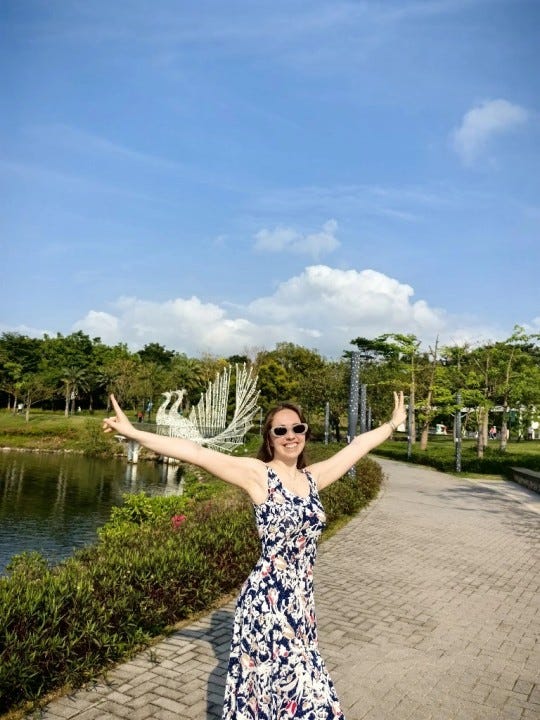
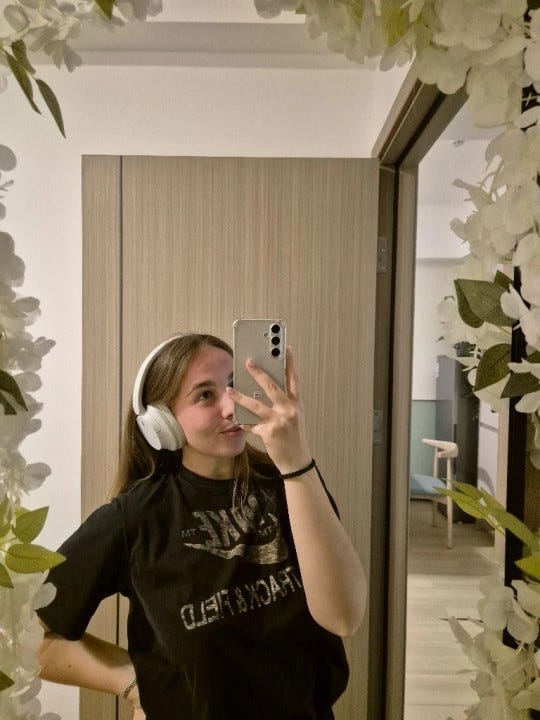
The lesson: Generally, one strategic connection in Shenzhen or China unlocks everything else. Make an effort to connect with people before you arrive or as soon as you can!
Your action step: Join groups—such as Facebook groups or WeChat groups—for Shenzhen expats before you move, and don't just lurk, actively reach out to people who offer to help newcomers.
The Digital Ecosystem Reality Check
Giulia quickly discovered that navigating China's digital landscape requires completely rewiring how she approaches technology and daily life. "Maybe it’s just me, but in the West, we might just Google something, click a few links, and get what we need. In China, the approach is entirely app-based: everything is done through platforms that integrate multiple services—but almost all of them are in Chinese."
When she needed to buy basic household items, find restaurants, or book services, she found herself constantly screenshotting Chinese text and running it through translation apps. "You'll quickly find yourself constantly screenshotting things and translating them. It becomes a part of your daily routine, and after a while, you'll start recognizing key buttons and features just by muscle memory."
The process felt overwhelming initially, but Giulia developed a practical strategy. "Worst-case scenario? You just ask your Chinese-speaking friends. Much faster (and usually more accurate)!"
Besides WeChat—China’s all-in-one super app for messaging, payments, and everything in between—her essential app arsenal became:
Alipay (支付宝) for payments and many more integrated functions such as ordering a cab or private car, accessing public transport and many more (surprisingly foreigner-friendly with English support)
Taobao (淘宝) and JD (京东) for online shopping
Meituan (美团) for food delivery, supermarkets and service bookings
Dianping (大众点评) to discover and receive recommendations on restaurants and places to visit
Baidu Translate (百度翻译) and Pleco for translation and dictionary needs
The lesson: Embrace the screenshot-and-translate lifestyle as a temporary bridge, not a permanent solution. Build relationships with locals (or long-term expats) who can help you navigate when technology fails.
Your action step: Download essential apps (if possible) and set up Alipay with your foreign bank card before arriving. Practice using them with translation tools while you're still in a familiar environment.
The Community Discovery Process
After getting into HeyShenzhen, Giulia discovered that Shenzhen's international community operates like a series of interconnected circles. "Often the journey starts within your own language community: for instance, the admin immediately added me to an Italian group. From there, it's easy to ask if there are groups for other interests you might have: Spanish speakers, for sports lovers, for foodies—anything, really." And from there, you begin passing from one friendly hand to another and expand your connections.
She also found professional networks beyond Shenzhen's borders. Through LinkedIn, she discovered influential women's communities in Shanghai like IPWS (International Professional Women's Society) and G.W.E.N. (Global Women Entrepreneurs Network), which focus on creating supportive spaces where women entrepreneurs learn from and uplift each other.
The key discovery was that Shekou serves as Shenzhen's unofficial headquarters for international life. "Almost all my current international friends live there. It's also conveniently located right in front of Hong Kong, making it a lively and dynamic area."

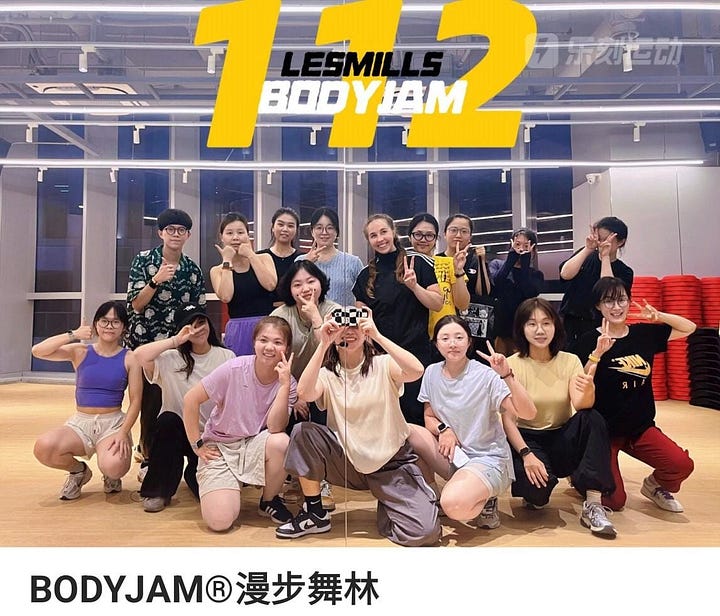
The lesson: Don't try to find all communities at once. Start with one strategic group, then let natural connections guide you to others that match your specific interests.
Your action step: Once you're in your first international WeChat group, actively introduce yourself and mention 2-3 specific interests you'd like to explore locally.
The Cultural Navigation Learning Curve
Giulia's early attempts to apply European social norms in China led to amusing misunderstandings that became valuable learning opportunities. When she asked her Chinese teacher how to greet shopkeepers politely, she received an unexpected response: "We're too busy to say hello. You just ask for what you need and go."
"That honestly shocked me at first. But it helped me realize that what we might perceive as impolite is actually just a different way of communicating. People here aren't being rude, they are often friendly and willing to help, but they skip the small talk and get straight to the point."
Even simple preferences like wanting a refreshing drink required adjustment. "In summer, Shenzhen gets really hot. So naturally, you go into a restaurant craving something cold and refreshing. But when you ask for water, they bring you a steaming hot cup. And you only realize it's hot after it's already halfway down your throat!"
These experiences taught her that cultural adaptation requires patience with yourself as much as with others.
The lesson: What feels rude or illogical often has deep cultural reasoning. Approach differences with curiosity rather than judgment.
Your action step: When you encounter something that seems "wrong" or confusing, ask a local friend to explain the cultural reasoning behind it instead of assuming inefficiency.
The Language Barrier Strategy
Despite Shenzhen's growing international profile, Giulia found that English wasn't widely spoken outside of Shekou. "In Shenzhen, English is still not widely spoken, especially outside the international area Shekou, but things are improving—especially with younger people, who are more exposed to English and eager to practice."
Her survival strategy became less about achieving fluency and more about developing functional communication skills. She relied heavily on visual aids, translation apps like Pleco for offline dictionary access, and the goodwill of locals willing to help foreigners.
The key insight was recognising that communication doesn't require perfection. "All of this takes time to understand and even more time to adapt to. But I think the key is to stay open, curious, and willing to unlearn some habits while learning new ones."
The lesson: Functional communication beats perfect grammar. Focus on smart use of translation tools, taking small steps, and patience rather than expecting to master Mandarin.
Your action step: Download reliable translation apps like Pleco and consider tools like ChatGPT or DeepSeek for help with Chinese translations, but don't let language anxiety prevent you from trying to communicate.
The Reality Check
Giulia's expectations about settling in clashed with the reality of adapting to such a dramatically different culture. "Even after one year here, I still feel like I've only scratched the surface. But once you start to figure things out—with the help of others and a lot of trial and error—you slowly begin to adapt."


Her expectation: Coming from successful transitions within Europe, she anticipated a similar learning curve.
The reality: China required starting from zero in ways that previous European moves hadn't prepared her for.
The insight: Adapting to China’s culture and lifestyle is a unique journey that cannot be rushed or compared directly to past experiences in Europe or elsewhere. Each person’s pace and path are different, and that is perfectly fine. Cultural adaptation is not a linear process, and China operates under different rules than European transitions. Allow yourself to feel unsettled. The important part is to remain open, patient, and proactive in seeking assistance and building connections.
The Relationship Balance Reality
Maintaining European connections while building new ones in China presented unique challenges that Giulia hadn't anticipated. "When you move abroad, especially somewhere as far as China, once you start building a completely new life—work, personal time, new friends, new routines—it's natural that syncing schedules with people back home becomes more complicated."
She discovered that distance acts as a filter for relationships. "You realize some connections naturally stay strong despite the distance, while others may have been more connected to the time and space you shared before. And this is normal."
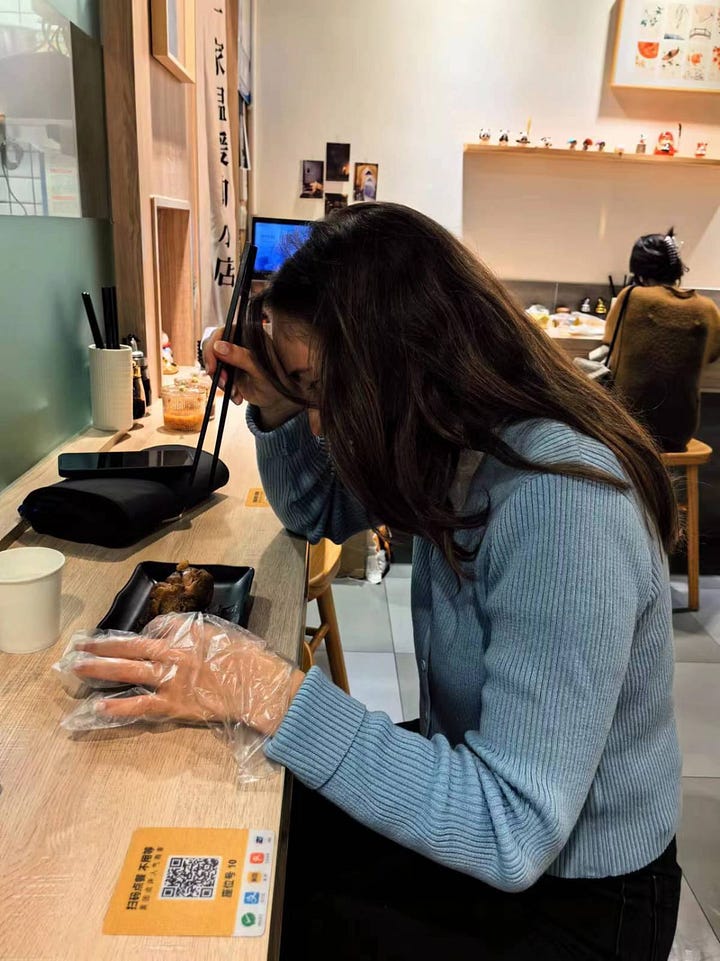
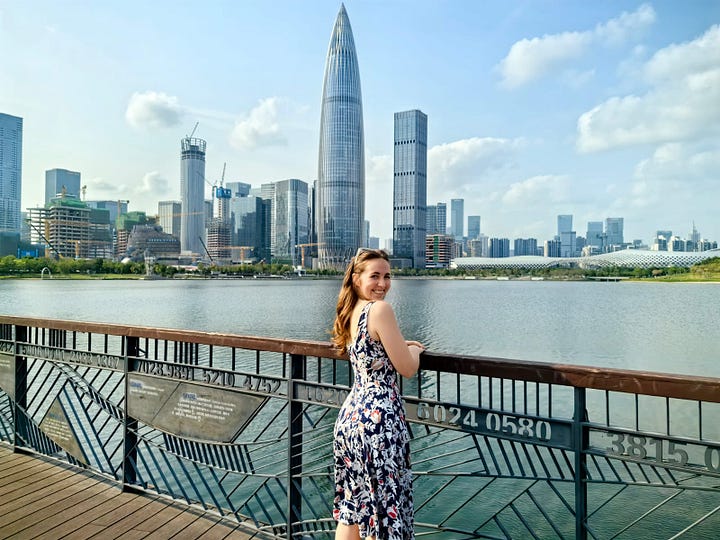
Rather than seeing this as a loss, she found unexpected depth in the relationships that survived the transition. "Weekly chats may turn into monthly ones, daily sharing becomes a little bit harder to manage, and that's okay. It doesn't mean the relationship is weaker; it just reflects shifting priorities and time."
The insight: Long-distance relationships require intentional effort from both sides, but the ones that survive become stronger through that shared commitment.
Giulia's Promise to Future Shenzhen Residents
After a year of navigating Shenzhen's unique challenges, Giulia offers this encouragement to others considering the leap.
She emphasises that the learning process, while demanding, becomes manageable over time. The key insight she shares is that adaptation in China requires a different mindset than European transitions - one that embraces uncertainty rather than seeking immediate mastery.
Her perspective on the broader journey remains optimistic: the challenges come with rewards that aren't immediately visible but become clear as you build your life in the city.
For those hesitating about making such a dramatic cultural leap, Giulia's experience demonstrates that with patience, openness, and willingness to seek help, building a meaningful life in Shenzhen is entirely achievable.
Giulia Baldi is a Swiss-Italian professional who moved to Shenzhen in 2023. Connect with her on LinkedIn, Instagram or add her on WeChat (Giulia-Baldi) for more insights about life in China.
Read Giulia's full transformation story in her Spotlight!
Weaving together stories, resources, and communities abroad



